Résumer cet article :
Since the initial presentation of the Storey battery by Sunology at the end of last year, anticipation has only grown, especially among those who pre-ordered their model. While the promising concept had generated significant excitement thanks to its ease of installation and bidirectional technology, months passed with little concrete information leaking out. Today, six months after this initial announcement, the question arises: will the Sunology Storey still be able to compete against an increasingly strong competition and falling prices from players like Zendure, Anker, or Ecoflow? Following a recent email sent to those who pre-ordered it, we take stock.
Official news on the Sunology Storey battery: progress and deadlines
After a long period of silence, Sunology has finally communicated official information to the pre-orderers of the Storey, the highly anticipated solar storage battery. This communication has provided a clear timeline and upcoming features, dispelling some doubts while raising new questions.
According to recent statements, more than 1,500 units of the Storey have already been pre-sold, a sign of real enthusiasm despite the absence of a tangible product until now. Sunology maintains the shipping goal for the end of summer, aligning with the initial promises.
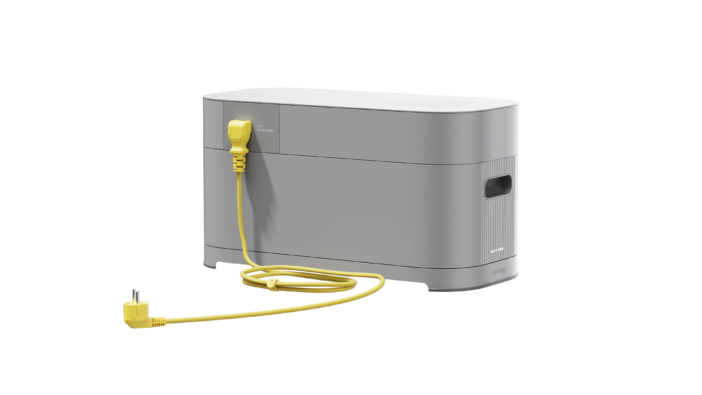
The Storey is presented as a modular battery with an initial capacity of 2.2 kWh. One of the strong points of this solution is its ability to stack additional modules, thus increasing capacity and power delivered up to 26 kWh. This scalability aims to be as simple as possible, with the company emphasizing a plug-and-play system designed to facilitate installation and maintenance for the end user. In parallel, a more professional installation connected directly to the electrical panel may be set up, requiring the intervention of a certified technician, particularly for compliance with electrical standards and installation safety.
The design has also been highlighted, with the Storey standing out as one of the most aesthetically pleasing residential batteries among those recently presented on the market. This aesthetics is not simply a detail, but a desire to make the use of solar energy storage more accessible and attractive to a wide audience, better integrating the product into modern homes.
Sunology has also announced offering several exclusive advantages to its early customers: a guaranteed preferential rate, early access to the official sales opening, and a bonus gift, the details of which remain discreet for now. This strategy aims to reward the brand’s pioneers while maintaining a strong loyalty to the commercial approach.
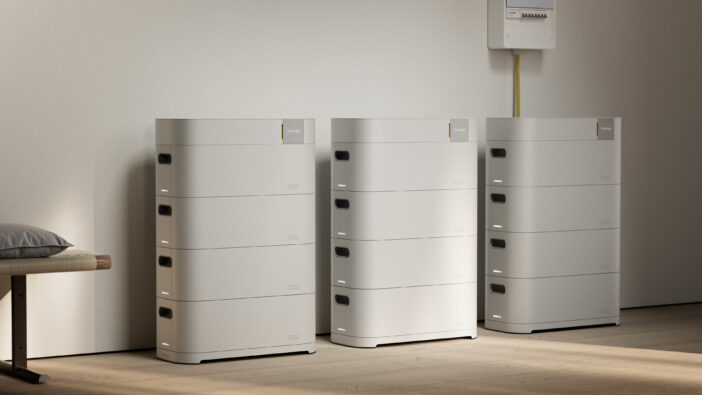
However, despite this encouraging progress, the accumulated delay leaves uncertainty about the Storey’s ability to captivate the market at the time of its launch, faced with already well-established competition.
Bidirectional technology and modularity: a preserved competitive advantage?
The Storey battery boasts being equipped with bidirectional technology, positioned as an essential standard for modern home storage solutions. This system allows not only to store captured solar energy but also to return this energy with great efficiency based on needs, while ensuring continuous power supply in case of a blackout. Bidirectional batteries like the Storey also open the door to complementary uses, such as functioning as a backup power source or managing home consumption through intelligent optimization.
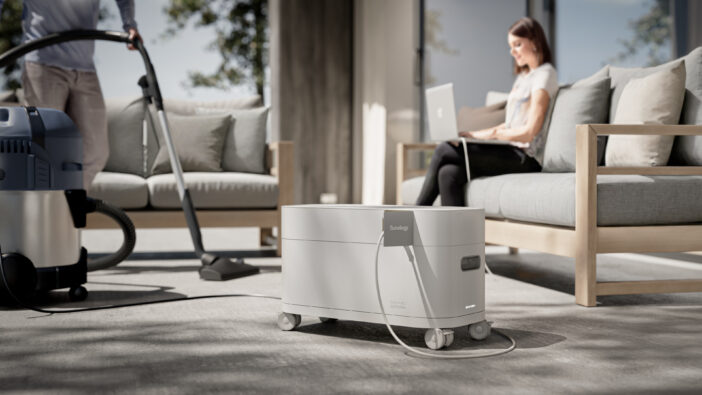
The modularity offered by Sunology is another feature that deserves attention. Unlike many static batteries whose capacity is fixed, the Storey takes the gamble of easy expansion through additional modules. This means that users can adjust their system over time, in response to their evolving needs or new energy opportunities.
This functional flexibility appears as an asset in a market where consumer demand tends to become more complex, with connected homes, fluctuating storage needs depending on seasons, and a search for economically optimized solutions in the long term.
However, bidirectional technology is no longer an exclusive feature of Sunology in 2025. Brands like Anker, Zendure, or Ecoflow have already integrated this standard into their products, some offering similar capacities, sometimes at a lower price, and often with immediate availability. For example, Ecoflow has been offering batteries for a few months now at particularly aggressive prices and with good compatibility with recognized residential solar panels.
If the Storey has an intuitive user interface and an easy installation process, these qualities are now expected by the market; they form the minimum foundation to hope to stand out.
The question arises: does the Storey traverse this path of technological innovation with enough lead time to justify the wait and the announced price? Or does it merely adhere to already proven standards, making its late entry more difficult to justify?
In the face of competition, is the Storey still a cost-effective solution?
In terms of solar energy, profitability is often the primary criterion. With an initially announced price around €1,390 for the main module (2.2 kWh) and €1,190 for the extensions, the Storey positions itself at about €600 per kilowatt-hour of installed capacity. This figure includes a built-in inverter of 500 Watts, giving it a technical advantage, but also raises the question of the overall cost relative to the market.
Since the presentation of the Storey, a strong downward trend in costs in the home battery sector has been observed. Competitors like Ecoflow are now showcasing competitive solutions with attractive prices, sometimes significantly lower than the Storey, while offering similar, if not better, technology and warranties.
Moreover, the diversity of available products allows for greater modularity but also more budget flexibility for consumers. For instance, the Zendure or Anker Solix batteries are stackable, their power and capacity can be extended according to needs. This type of option reshuffles the cards for Sunology, which was initially a pioneer in a still immature segment.
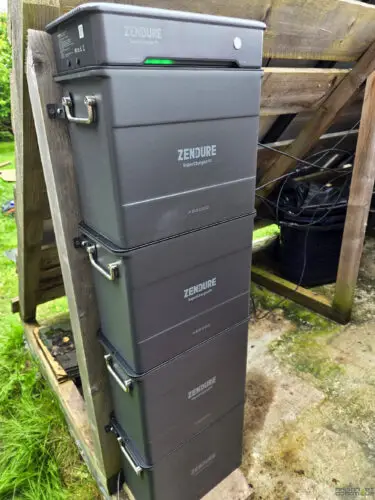
In this context, profitability for the end user depends on several parameters: the initial energy bill, the battery’s capacity and lifespan, the total installation cost, but also the savings made via self-consumption and intelligent management of electricity consumption. The Storey claims 7,500 charge cycles, which would correspond to a technical lifespan of about fifteen years, a high standard in the field.
Despite these promises, the delay in its release and the maintenance of high prices could limit the return on investment. For a household seeking an effective solution quickly, the Storey may appear too expensive and not justify the additional wait time.
Another variable is related to associated services, such as warranty, after-sales service, and software support over time, which can influence the choice. Sunology will need to take care of these elements to strengthen its position, especially against Chinese or American products whose growing presence requires vigilance regarding quality and local support.
The stakes of launching in summer 2025 for Sunology in a dynamic market
The decision to schedule the shipment of Storey batteries for the end of summer 2025 is both strategic and risky. This timeline allows the Storey to enter a now mature, demanding market, where innovations in solar storage, efficiency, and cost savings are evolving rapidly.
Manufacturers of domestic solutions are betting on responsiveness and the ability to renew their range to meet the changing needs of a more informed clientele. If the Storey arrives too late in this market, it could face competitive pressures, especially concerning price and functionality.
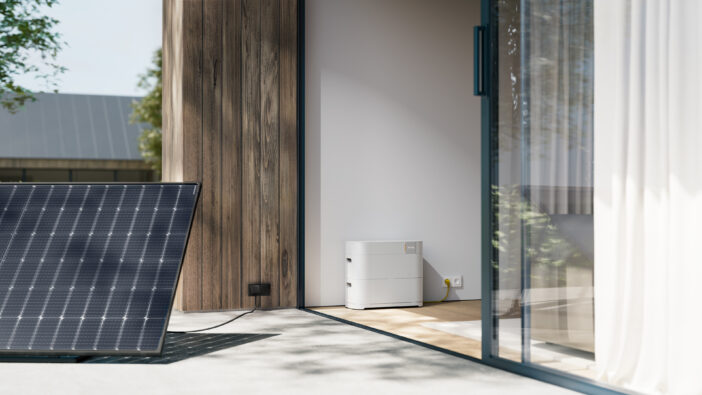
Users and individuals have also evolved in their expectations. Solutions must be easy to use, reliable, and also offer a quick return on investment. The Storey must thus convince not only through its technology but also through the added value it represents in a complete installation. This includes ease of integration into an existing home equipped with solar panels, but also future extension possibilities.
A crucial point finally concerns communication and trust. After a first reveal in 2024, the absence of publicly accessible tests and the accumulated delay tend to fuel doubts. Sunology will need to intensify its efforts for information, demonstrations, and on-the-ground proof to inspire confidence and reassure potential customers, especially at a time when a French brand can capitalize on local ties and technical expertise.
Among the favorable factors is the growing appetite for individual eco-friendly solutions, rising electricity prices, and the general desire to control energy consumption. In this context, the Storey has an interesting market opportunity if it knows how to meet expectations without succumbing to haste.
In the end, what to think of the Sunology Storey?
If the launch of the Storey seems to be confirmed, several questions remain unanswered, particularly regarding the evolution of the final price at launch, the battery’s actual capacity to deliver sustainable performance, and the associated services.
The promised bonus gift to early customers, potentially a smart meter, piques curiosity. This type of equipment allows for fine-tuned and automated consumption management, thereby optimizing the use of the battery and solar panels. Such an offer, if confirmed, would enhance the overall attractiveness, providing an appreciable added value to the Storey.
The ability to integrate additional modules and ease of use are strong arguments. However, the product now needs to convince through real-world feedback, robust autonomy and charging tests, as well as a lifespan exceeding standards to justify its price and time to market. We will see if we can offer you such a test at its launch.
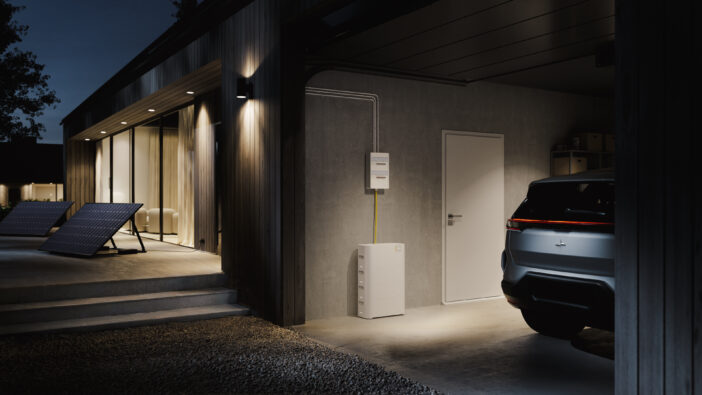
Finally, the positioning in the face of new releases and price reductions from Anker, Zendure, and Ecoflow remains the crux of the debate. The current trend shows a market where solutions are becoming democratized, driven by increasing competition and constant technological innovations. To establish itself, Sunology must achieve a perfect optimization between quality, price, and availability.
The Storey battery marks an important step in the French dynamics of the energy storage sector. If it succeeds in overcoming doubts and adapting quickly to commercial expectations, it could become a credible local alternative to the heavyweights of the international market. The challenge is set, not only in terms of product but also in brand image and customer loyalty.
Meanwhile, pre-orders are still open with a deposit of only €79, allowing you to benefit from an exceptional rate afterwards. So do not hesitate to reserve yours now, especially since with our code SUN_MAISONDOMOTIQUE you can enjoy a 5% discount (on the reservation but also on the final rate).

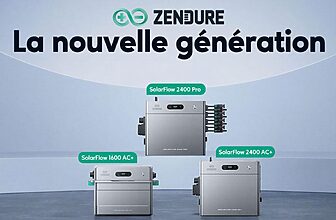
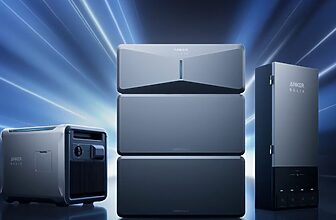
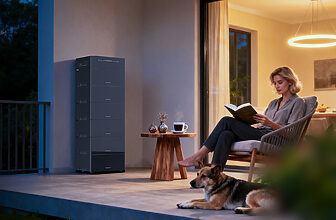
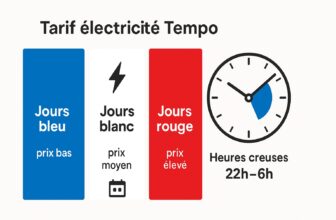

Please remain courteous: a hello and a thank you cost nothing! We're here to exchange ideas in a constructive way. Trolls will be deleted.